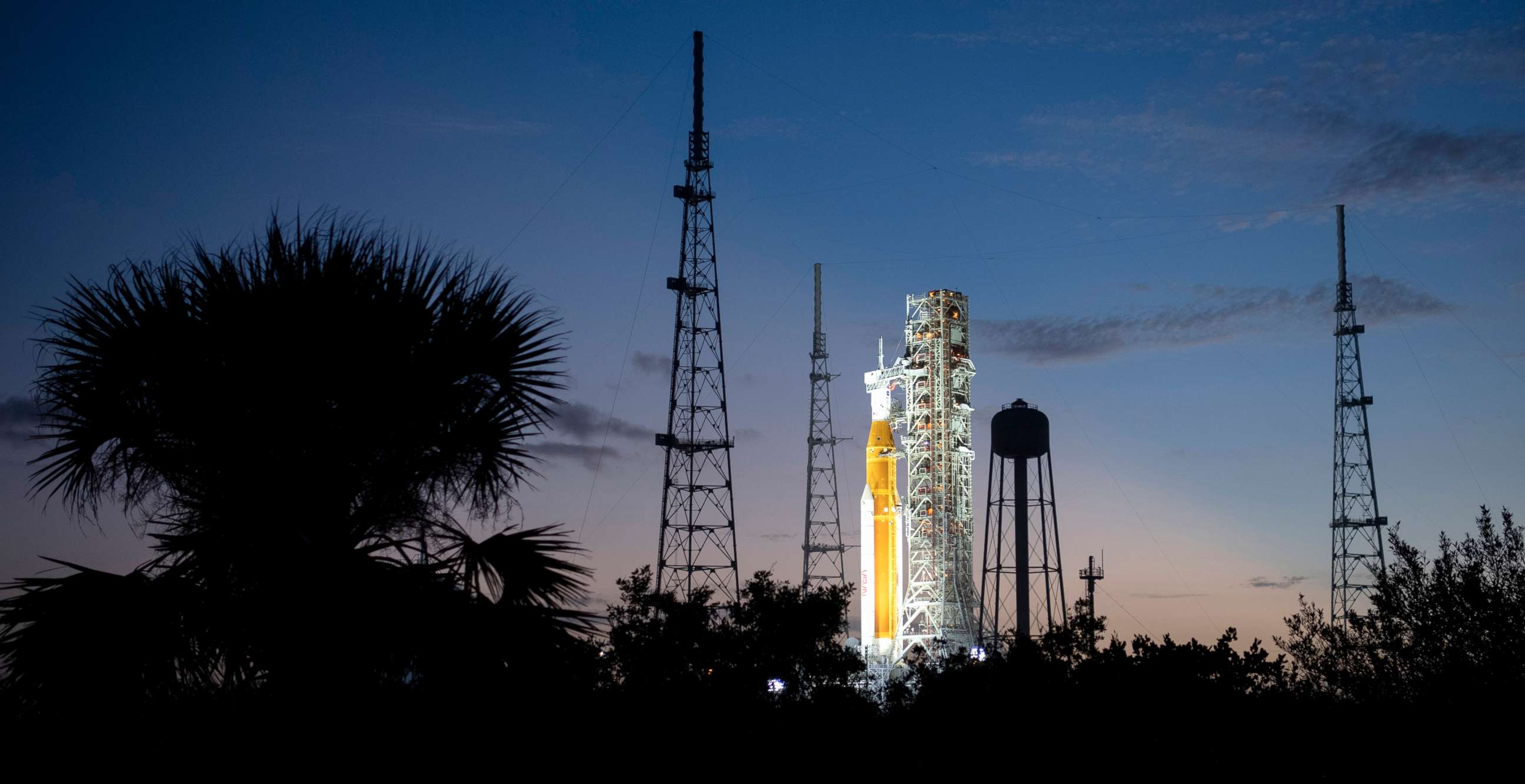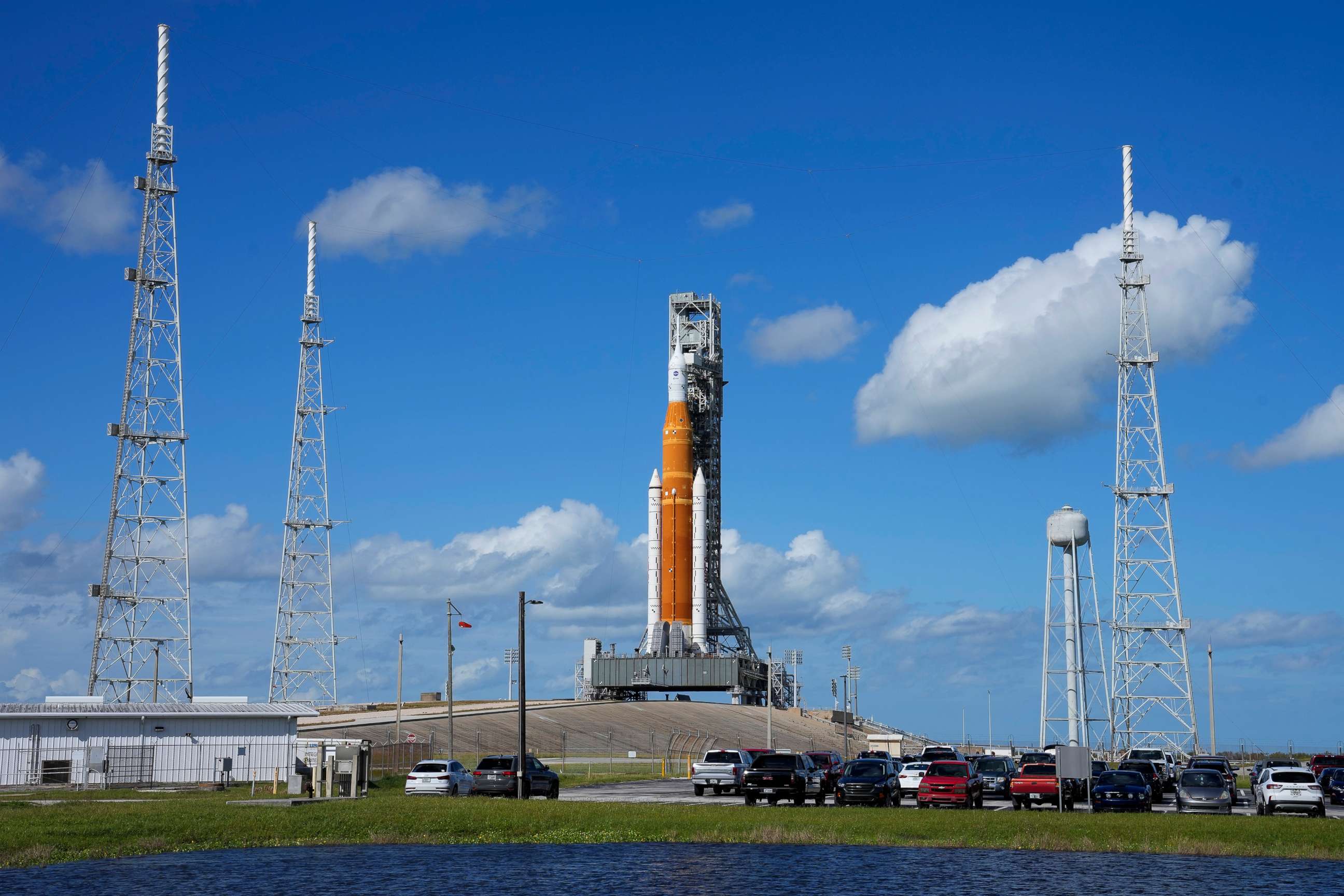How Hurricane Nicole impacted Artemis I rocket
The launch was postponed from Nov. 14 to Nov. 16.
Officials at NASA said the Artemis I rocket experienced some damage due to Hurricane Nicole but it is still expected to launch next week.
The rocket remained on the launchpad at the Kennedy Space Center while Nicole made landfall in the early hours of Thursday morning as a Category 1 hurricane about 85 miles south of Cape Canaveral, Florida, before downgrading to a tropical storm.
NASA was forced to postpone the launch date from Monday, Nov. 14, to Wednesday, Nov. 16 because of the forecast.
During a press conference Friday, Jim Free, associate administrator for NASA's Exploration Systems Development Mission Directorate, said the damage was "minor" and easy to repair and the launch is still scheduled as planned.
"There's nothing preventing us from getting to the 16th," Free told reporters during the briefing. "We do have some work to do."
Free said the storm led to loose caulk, a tear in the engine rain covers and water in the crew access arm that is being flushed out.

The arm provides entry and emergency exit for astronauts and technicians into and out of the Orion spacecraft, which is the part of the rocket that will actually orbit space.
Additionally, one of the umbilicals, which attach to the rocket boosters, was exhibiting "erratic signals" and the team may switch to a backup harness.
NASA said pushing back the launch date also ensured employees could safely return to work and resume inspections.
Free admitted keeping Artemis on the launch pad was not the team's first choice, but that employees were unable to get the rocket back into the Vehicle Assembly Building in time. Luckily, the winds did not hit the limits of what the team said the rocket could withstand.
Artemis is being powered up Friday and engineering tests will begin Sunday with the countdown to launch starting Monday
If Artemis is declared ready on Nov. 16, a two-hour window will open at 1:04 a.m. ET with splashdown expected Dec. 11. If needed, the back-up window is Saturday, Nov. 19, and Friday, Nov. 25.
This is not the first time the mission has been delayed.

In late August, officials scrubbed the mission because one of the four engines did not cool down enough to the temperature needed before ignition, which was later revealed to be due to a faulty sensor.
A second attempt was set for Sept. 3 but had to be delayed after officials detected a liquid hydrogen leak.
The third planned launch attempt of Artemis on Sept. 27 was scrubbed due to Hurricane Ian, which ended up being one of the most devastating hurricanes in U.S. history.
The goal of the Artemis I mission, which will not have any astronauts on board, is to see if the U.S. can get back to the moon and, if so, establish a long-term moon base for research.

The space capsule will travel for about 25 days -- reaching about 60 miles from the moon -- before splashing down in the Pacific Ocean off the coast of San Diego.
Over the course of the Artemis missions, NASA plans to eventually send the first female astronaut and the first astronaut of color to the moon.
The federal space agency also plans to establish a moon base as a steppingstone to send astronauts to Mars by 2024 or 2025.
ABC News' Gina Sunseri contributed to this report.




